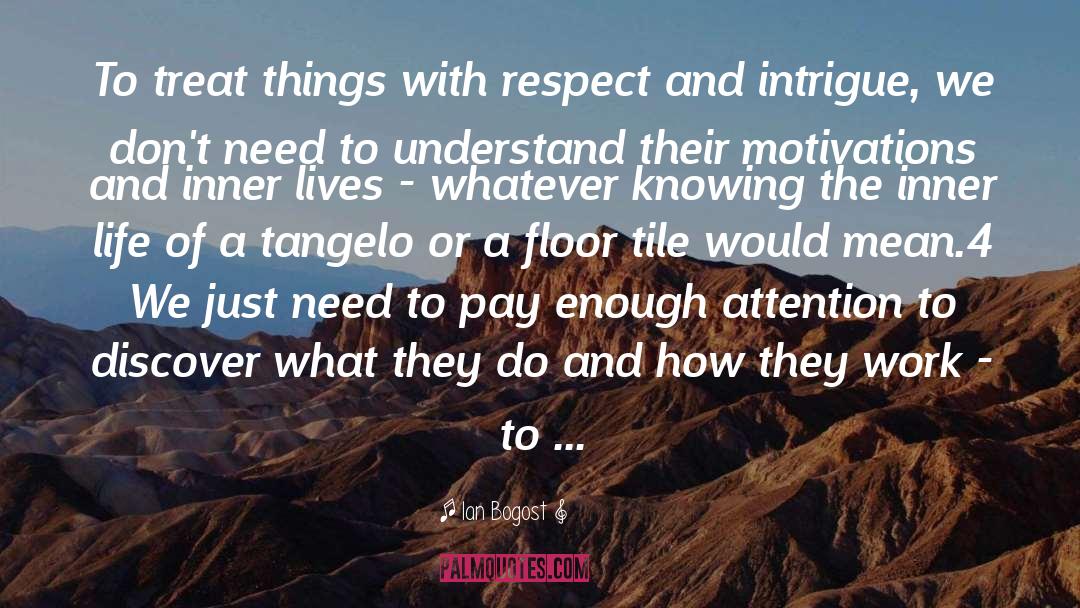Ian Bogost Famous Quotes
Reading Ian Bogost quotes, download and share images of famous quotes by Ian Bogost. Righ click to see or save pictures of Ian Bogost quotes that you can use as your wallpaper for free.
Boredom is the secret to releasing pleasure. Once something becomes so tedious that its purpose becomes secondary to its nature, then the real work can start.
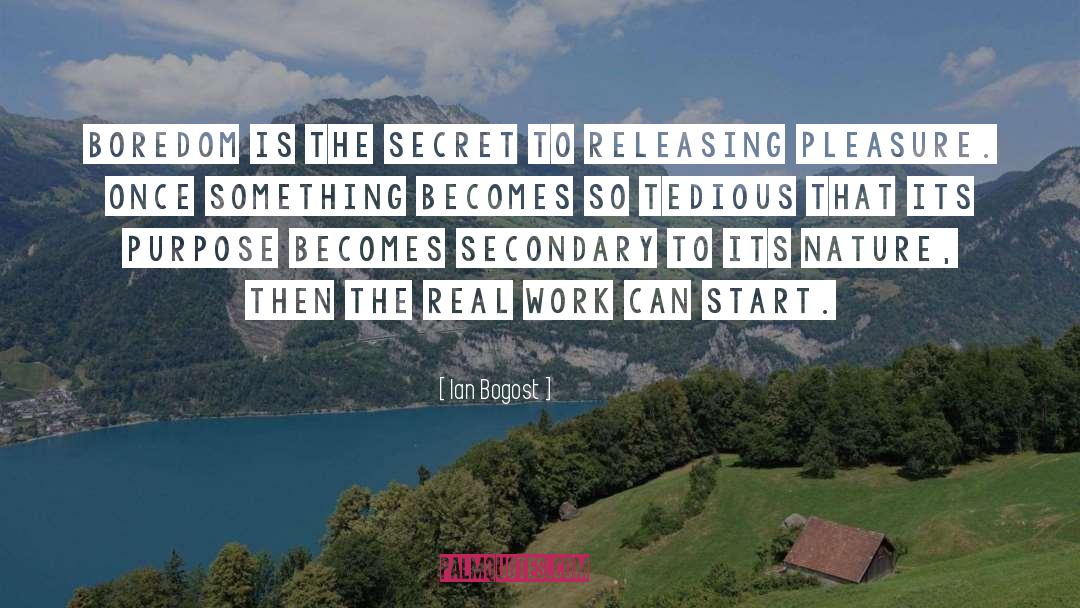
She was having fun, but her fun emerged from misery. Fun isn't pleasure, it turns out. Fun is the feeling of finding something new in a familiar situation. Fun almost demands boredom: you need the sense that nothing good could possibly arise from an experience in order for the experience of finding something there to smolder with the hot pleasure of surprise. Likewise,

By manipulating the physical configuration of [any situation], you make it produce a subset of the infinite pattern of [possibilities]. And even if you don't know how to play [above situation], you can still play with it.
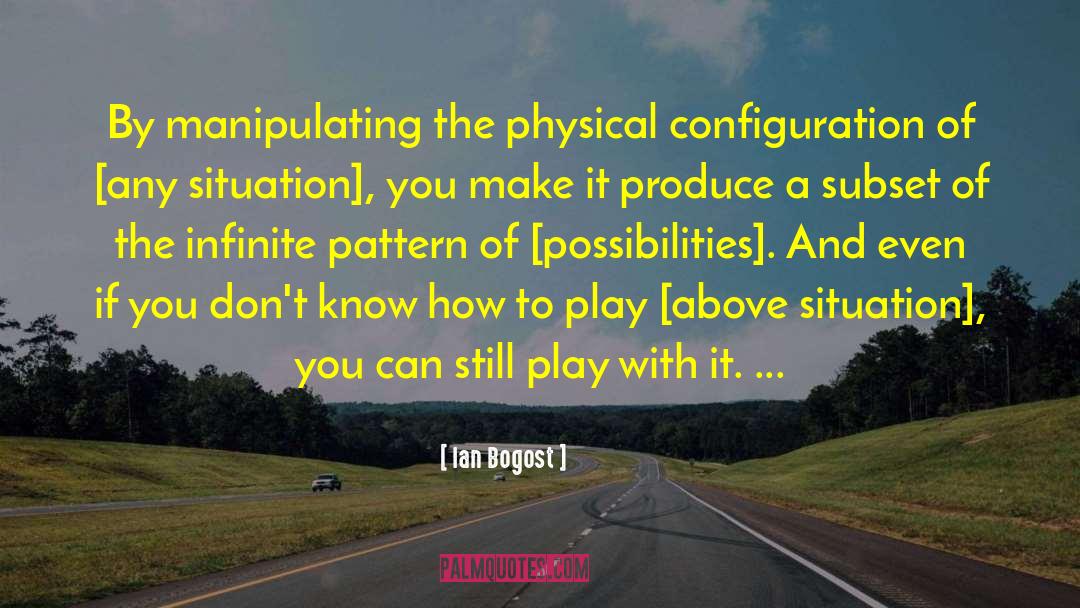
Children aren't only less inhibited than adults; they are also less powerful, and smaller too. They may or may not be more open-minded and liberated than grown-ups, but they are forced to live in a world that wasn't designed for them, and one that is not primarily concerned with their desires and their welfare. And so children are constantly compromising, constantly adjusting to an environment that is clearly not theirs, not yet. That's wisdom, not innocence.
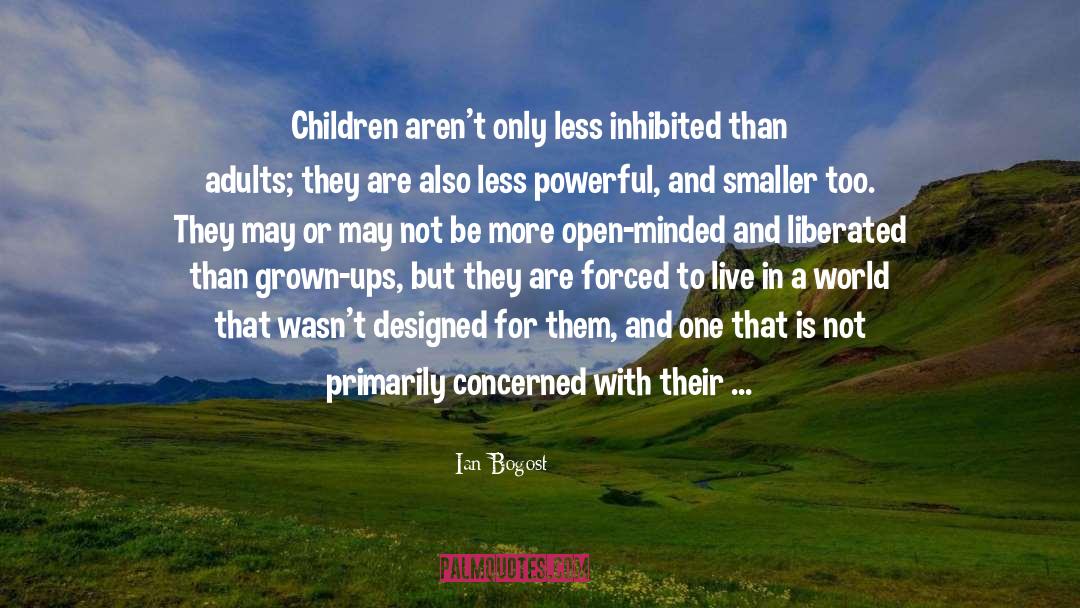
The German sociologist Niklas Luhmann once observed that the simple act of asking yourself, "Where did I put my keys?" performs unexpected magic: it transforms the world into a catalog of possible key locations.1 Under the couch, somewhere the dog or the baby moved

the discursivity of games is changed by the capabilities of game engines. The kinds of works, and the nature of these works, have material and functional limitations and capabilities-the unit operations the game engine exposes. These limitations and capabilities influence the kind of discourse the works can create, the ways they create them, and the ways users interact with them. For better or worse, the capabilities of game engines have been limited to visual and physical experience, rather than emotional and interpersonal experience.
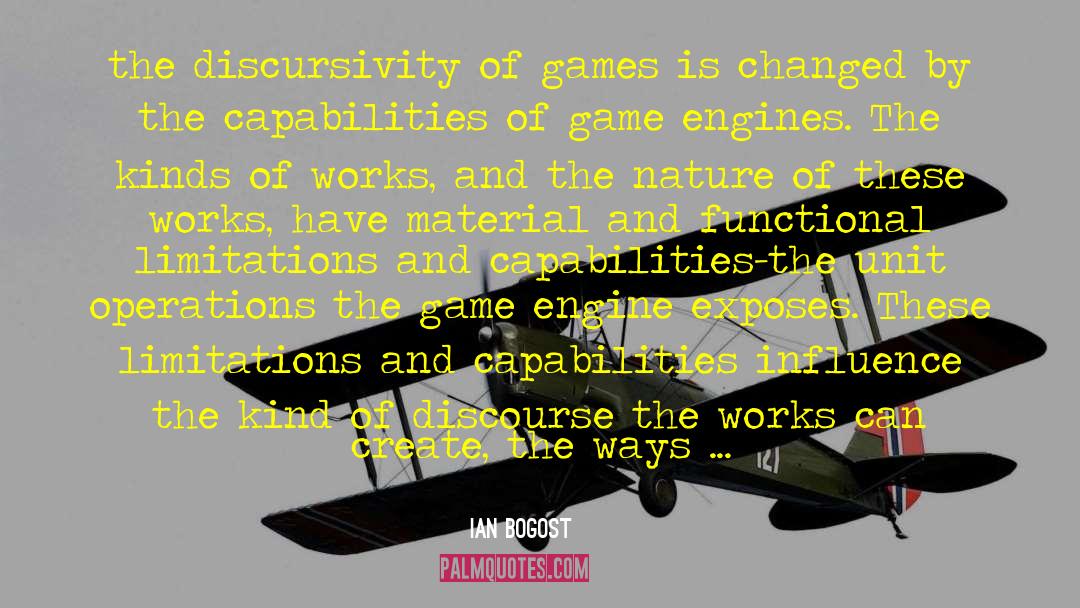
Today, all our wives and husbands have Blackberries or iPhones or Android devices or whatever-the progeny of those original 950 and 957 models that put data in our pockets. Now we all check their email (or Twitter, or Facebook, or Instagram, or) compulsively at the dinner table, or the traffic light. Now we all stow our devices on the nightstand before bed, and check them first thing in the morning. We all do. It's not abnormal, and it's not just for business. It's just what people do. Like smoking in 1965, it's just life.
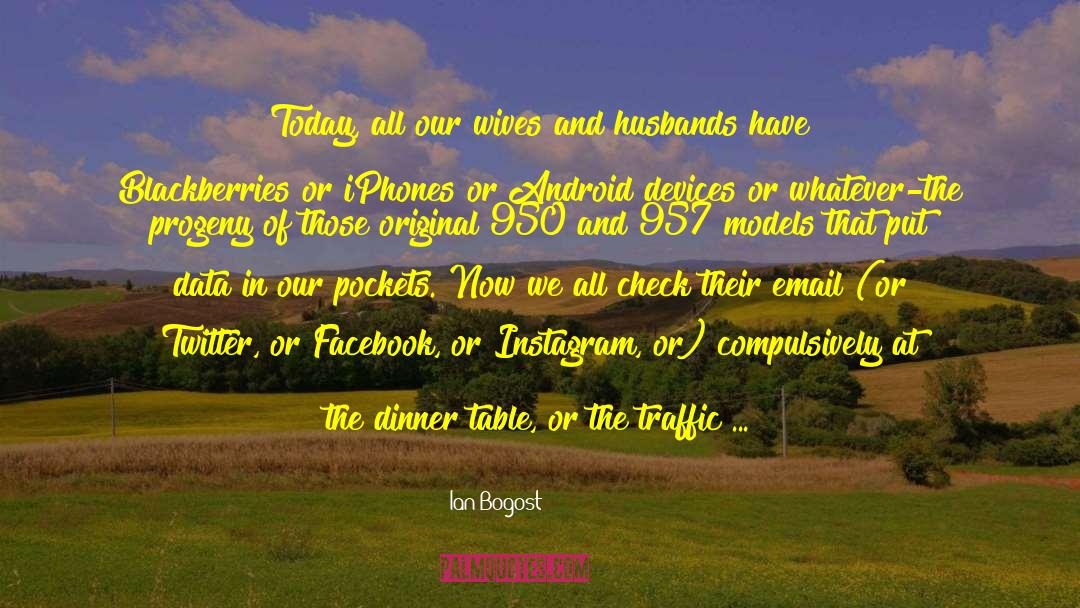
Videogames require critical interpretation to mediate our experience of the simulation, to ground it in a set of coherent and expressive values, responses, or understandings that constitute effects of the work. In this process, the unit operations of a simulation embody themselves in a player's understanding. This is the place where rules can be grasped, where instantiated code enters the material world via human players' faculty of reason. In my mind, it is the most important moment in the study of a videogame.

Turkle recounts the story of Marcia, a tenth grader she interviewed about Sim City. Marcia had developed a set of guidelines for playing the game, including this one: "Raising taxes always leads to riots."46 Turkle worries gravely about Marcia's inability to conceive of a simulation in which the rules would differ, in which, for example, "increased taxes led to increased productivity and social harmony."" Turkle calls for a new kind of literacy that would teach Marcia and her peers how to develop a reading competency of simulation.
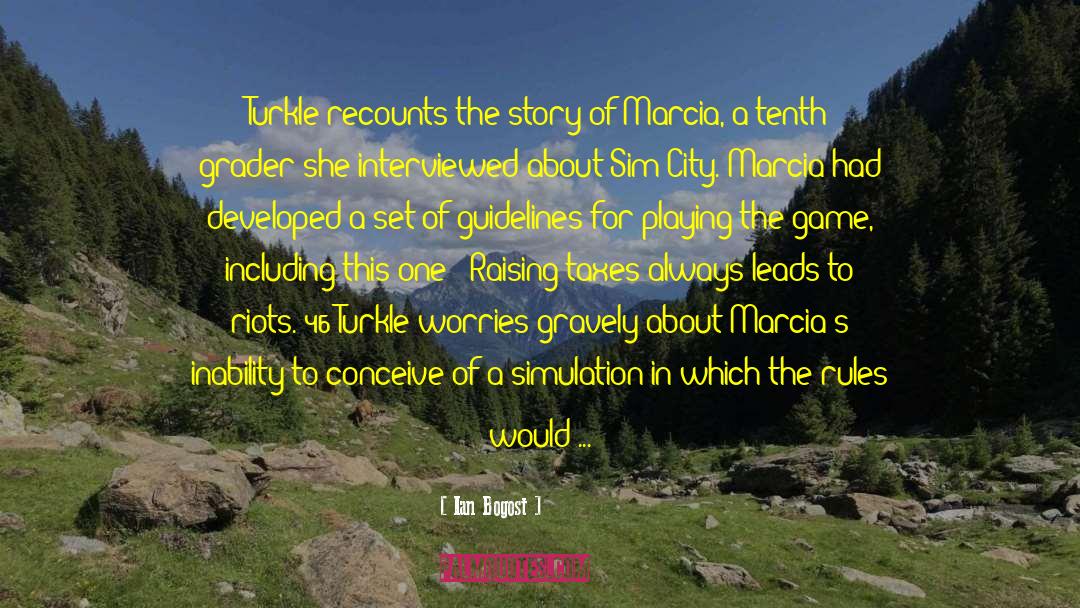
games aren't the opposite of work, but experiences that set aside the ordinary purposes of things.

Art has done many things in human history, but in the last century especially, it has primarily tried to bother and provoke us. To force us to see things differently. Art changes. Its very purpose, we might say, is to change, and to change us along with it.
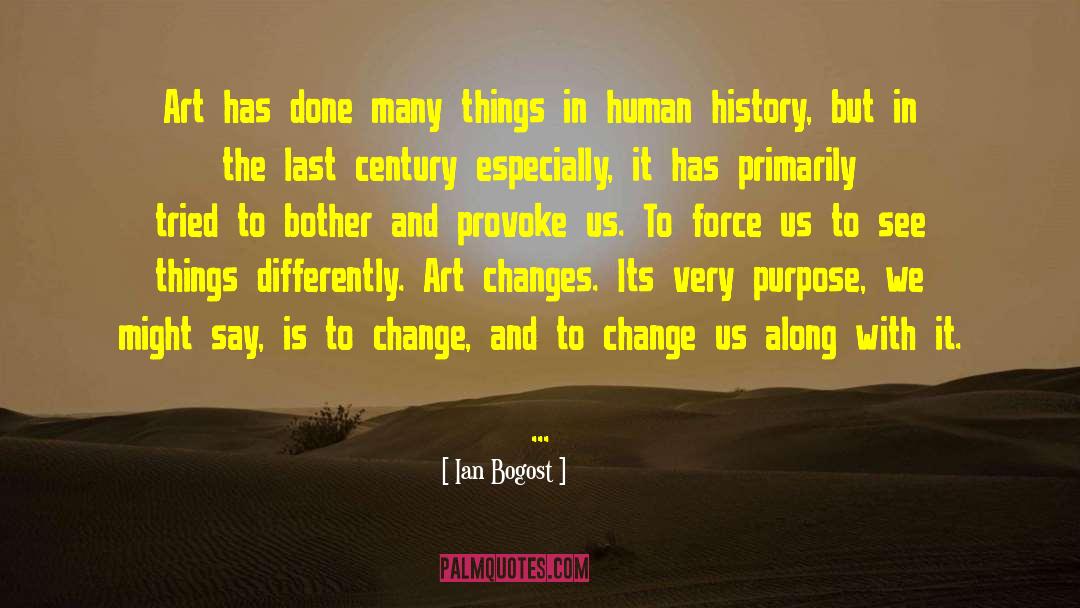
The ultimate lesson games give is not about gratification and reward, nor about media and technology, nor about art and design. It is a lesson about modesty, attention, and care. Play cultivates humility, for it requires us to treat things as they are rather than as we wish them to be. If we let it, play can be the secret to contentment. Not because it provides happiness or pleasure - although it certainly can - but because it helps us pursue a greater respect for the things, people, and situations around us.
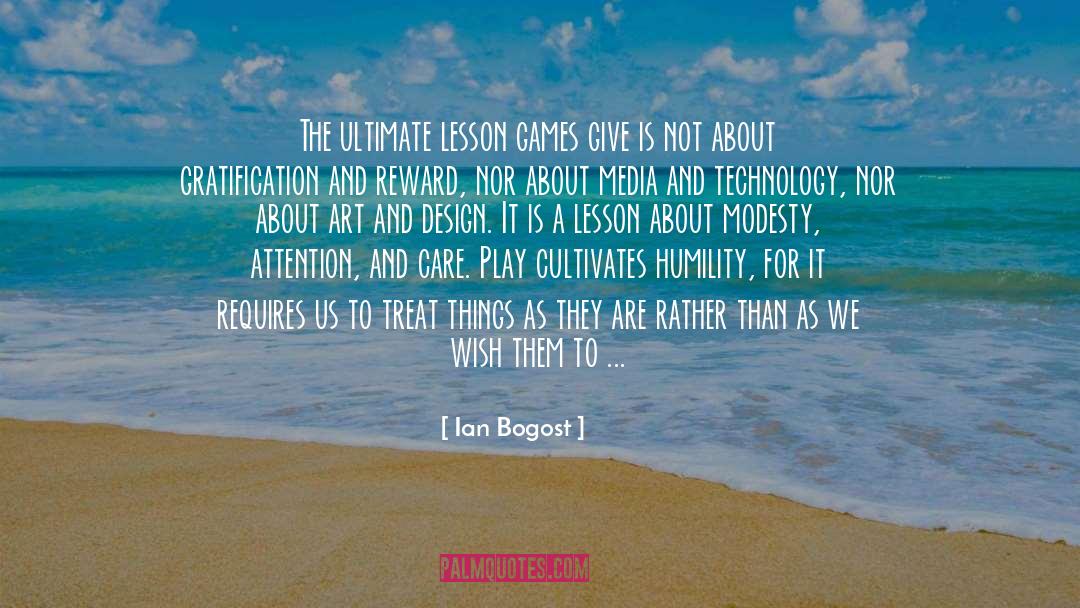
To treat things with respect and intrigue, we don't need to understand their motivations and inner lives - whatever knowing the inner life of a tangelo or a floor tile would mean.4 We just need to pay enough attention to discover what they do and how they work - to discover what they obviously and truly are - and then to make use of them in gratifyingly novel ways. And
